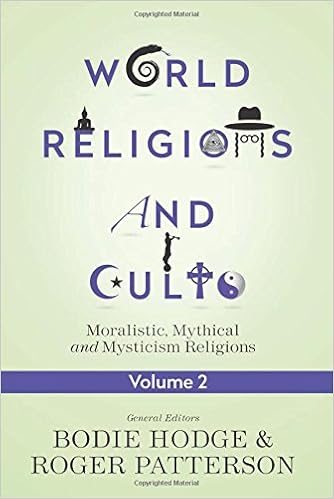Other Writings
 Gilbert Guttlebocker, Defender of Dragons
Gilbert Guttlebocker, Defender of Dragons
Riveting, yet absurd; romantic, yet innocent; Gilbert Guttlebocker, Defender of Dragons
is a little Roald Dahl, a little Harry Potter, and a little Chronicles of Narnia, all
rolled into one. Timothy McCabe collaborates with the great Benedict Ballyhoot to bring
you the novel of the century!
Read the first 10 chapters FREE!
 World Religions and Cults (vol 2)
World Religions and Cults (vol 2)
Along with numerous other authors including Don Landis, Bodie Hodge and Roger Patterson,
Timothy McCabe contributes analyses of various world religions and cults in this volume
from Master Books.
Purchase the book from Amazon
A.I. Chatbot Claude says God exists
A recent conversation with AI chatbot Claude, Anthropics Technology's ChatGPT competitor,
ends with the chatbot agreeing that reason demands the existence of God.
Read more
Rational Justification
An analysis of discovery, imputation, and authorship: the only three
possible methods of rationally justifying claims.
Read more
The Author Analogy
Comparing God to an author makes sense of a number of beliefs that Christians, monotheists,
and humans in general have about God and the world around them.
Read more
Scriptural Determinism
A set of scripture passages that I personally see as clearly affirming a view often referred
to as Divine Determinism. Specifically, God alone is the only uncaused-first-cause,
or ultimate cause, of everything that happens.
Read more
Resolving the Münchhausen Trilemma
Standard epistemology paradigms are often criticized for not delivering on ultimate justification
for claims. However, humans all recognize a simple mechanism that really does ultimately justify claims.
Why then does the Münchhausen trilemma get any traction? Simple: successful epistemology
requires submission to God.
Read more
The Book of Hebrews and the Real Presence
Based on the Book of Hebrews, this is a challenge for Roman Catholics, Eastern Orthodox,
and anyone else who holds to the ideas that the bread and wine, during the Christian communion becomes
Christ's flesh and blood literally; becomes God, and is to be worshipped;and is to be re-offered in
sacrifice to atone for sins.
Read more
Does God make us sin?
If God made everything, does He make us sin? Recognized as one of the most critical aspects of
the philosophical question known as “the problem of evil”, responses to this question from
Christians have been both incredibly diverse and strenuously adamant. And often,
horrifically contradictory...
Read more at church.org
If God knows the future, do I have a choice?
There are many who insist that a choice, a true choice, cannot be foreknown. The outcome cannot be
predetermined, or it isn’t really a choice. They recognize that if the outcome is predetermined,
then the one who chooses could never have chosen otherwise...
Read more at church.org
Why Care About Jesus?
What does a 2,000 year-old crucified Jew have to do with anyone today? Why do Christians insist
that Jesus matters? What does it mean when we say Jesus died for us? How does his death benefit me?
Read more
Deductive Proof of a Rational God
Is it really possible to deductively prove the existence of a rational God? The answer, believe it
or not, lies in the question itself. Is it possible to prove anything at all? Where to we get the
idea of proof from? What is our framework for thought, and is it actually rational?
Read more at linkedin.com
Other Writings
"If God said "Thou shalt not kill" then why did he flood the whole world leaving only Noah and his family alive, and how is the destruction of Sodom justified (killing people for engaging in "immoral" sex), is God exempted from morality?"
If you have small children, you may have told them that they are not allowed to answer the door, or to talk to strangers. Since they are your children, it is morally wrong for them to disobey you, at least in any circumstance where your commands do not go directly against God's commands (Ephesians 6:1; Colossians 3:20). This means that it would be morally wrong for your children to answer the door, or to talk to strangers, because in so doing, they would be disobeying you.
Continue reading...
"In Romans 1:22-27 especially verse 25, it condemns those who turn God's incorruptible image into the image of corruptible man. Why then do so many Christians say Jesus is 'god incarnate' or even 'son of god'?"
Jesus is one person with two natures. One of His natures is divine (God) and the other is human (man). His God-nature is not His man-nature, and likewise, His man-nature is not His God-nature. They are distinct. Thus, Christians correctly refer to Jesus as both "God" and also as "man", all the while NEVER referring to God as man or man as God. This may sound confusing, but it really is not when put into perspective. Take the following analogy...
Continue reading...